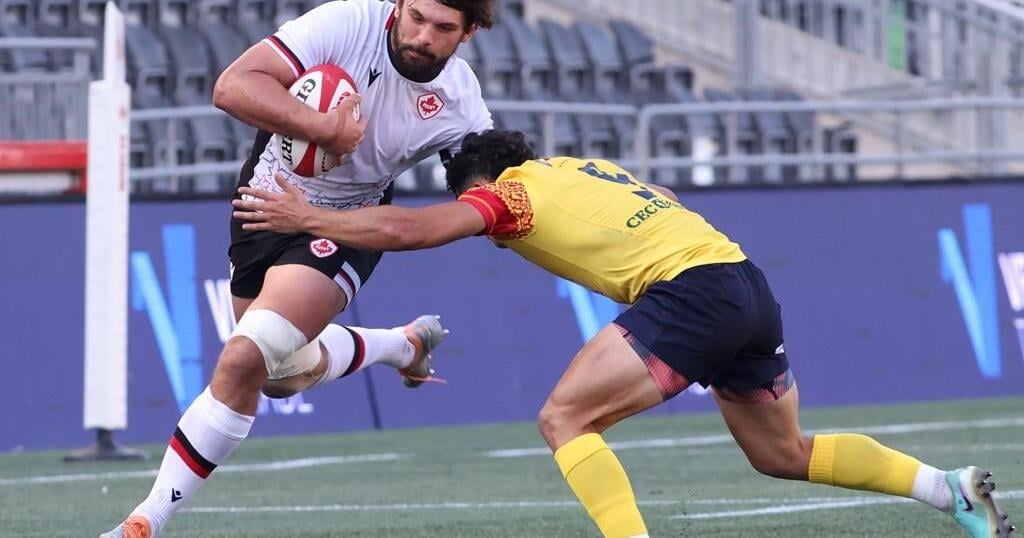VANCOUVER – A new atmosphere permeates Canada’s men’s rugby team these days — one of confidence.
Belief bubbled up when the squad downed world No. 20 Romania in Ottawa last month and it lingers as the 21st-ranked Canadians begin their Pacific Nations Cup quest in Vancouver on Sunday.
“I think (confidence) is probably something we’ve lacked in years past due to a number of different factors,” captain Lucas Rumball said Thursday. “But I think we need to start believing we’re a good team, start believing in ourselves, and see what can come with that.”
Canada’s conviction could be put to the test Sunday when the squad takes on No. 14 Japan at B.C. Place to open its Pacific Nations Cup run.
The two sides have not met since 2016 when the Canadians dropped a 26-22 decision in Vancouver.
That game has stuck with Rumball over the years.
“I was young in my career at that time. I think it was my third or fourth cap,” said the 29-year-old forward, who hails from Toronto. “So I was still kind of living in the moment and a little overwhelmed by things. But I remember a tight game.”
Eight years later, Japan remains a tough opponent, he added.
“They stick to their game plan really well, they work very hard,” Rumball said. “So you can never take a moment off.”
Japan’s an organized team, and Canada will need to impose its own style of play to control the game, said vice-captain Ben LeSage.
“They’re probably one of the fittest teams in the world. They just try and challenge other teams in terms of ball and play time, all those sorts of things,” he said. “I think when you make mistakes against them, they’re going to capitalize and they probably don’t make as many mistakes as other teams do.”
Sunday’s game will kick off a busy stretch for the Canadians.
Afterwards, the team will head to Carson, Cali., where they’ll continue the Pacific Nations Cup in a battle with the 19th-ranked United States on Aug. 31.
Canada and the U.S. will then join Japan, No. 10 Fiji, No. 13 Samoa and No. 16 Tonga in Tokyo for the tournament’s semifinals and fifth-place playoff on Sept. 14 and 15. The final and third-place playoff are set for Sept. 21 in Osaka.
Having a packed international schedule is a nice change of pace for the Canadians, said LeSage, who won a Major League Rugby championship title with the New England Free Jacks earlier this month.
“I think first and foremost, it’s just exciting for us to have rugby and be in a tournament,” he said. “Since the (2019) World Cup, there’s been sort of test matches few and far between. So just to have this recurring tournament where we’re playing some of the best rugby countries in the world, it’s exciting to be involved with that and have Canada in the mix.”
The Pacific Nations Cup allows the squad to “get into a bit of a rhythm,” he added, and that’s big for a team that mixes veterans like LeSage and Rumball with up-and-coming athletes — especially as Canada strives to earn a spot at the 2027 Rugby World Cup in Australia.
“Obviously we want to win the Pacific Nations Cup and win every test match we play. But with World Cup qualification being next year, there’s not a lot of pressure this year,” LeSage said.
“We’ve got a young team. A lot of guys, (Sunday) will be the first time they play in front of a crowd this big. We’re staying at world-class hotels, using world-class facilities. It’s a pretty amazing opportunity just to be involved. So I think you can take lessons this year and build confidence going into next year.”
This report by The Canadian Press was first published Aug. 23, 2024.
